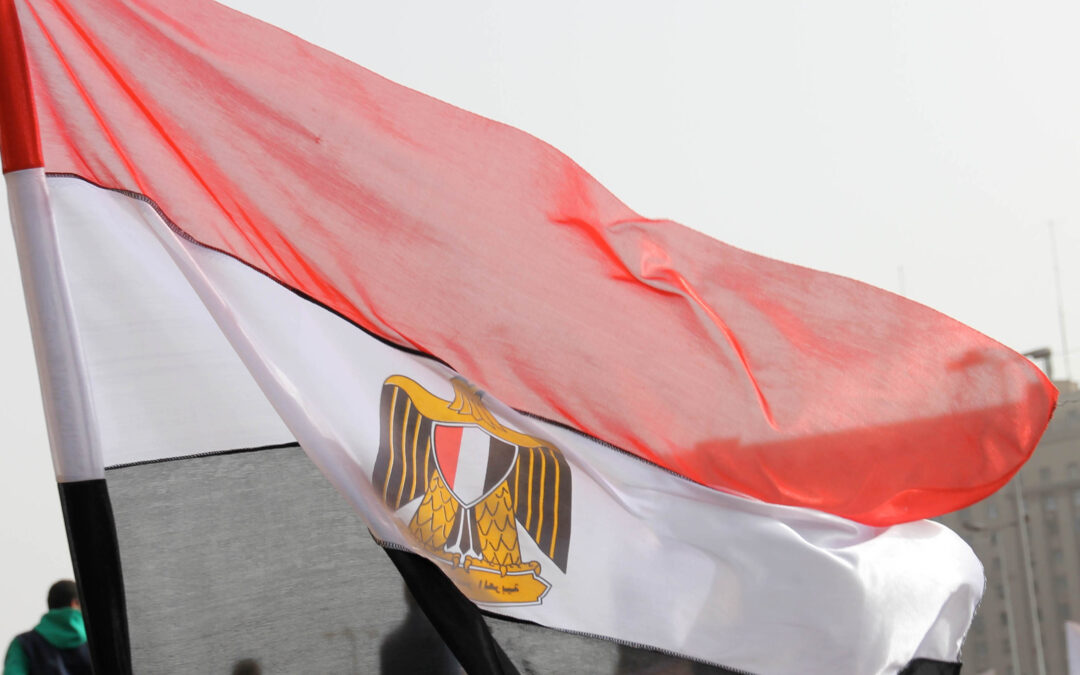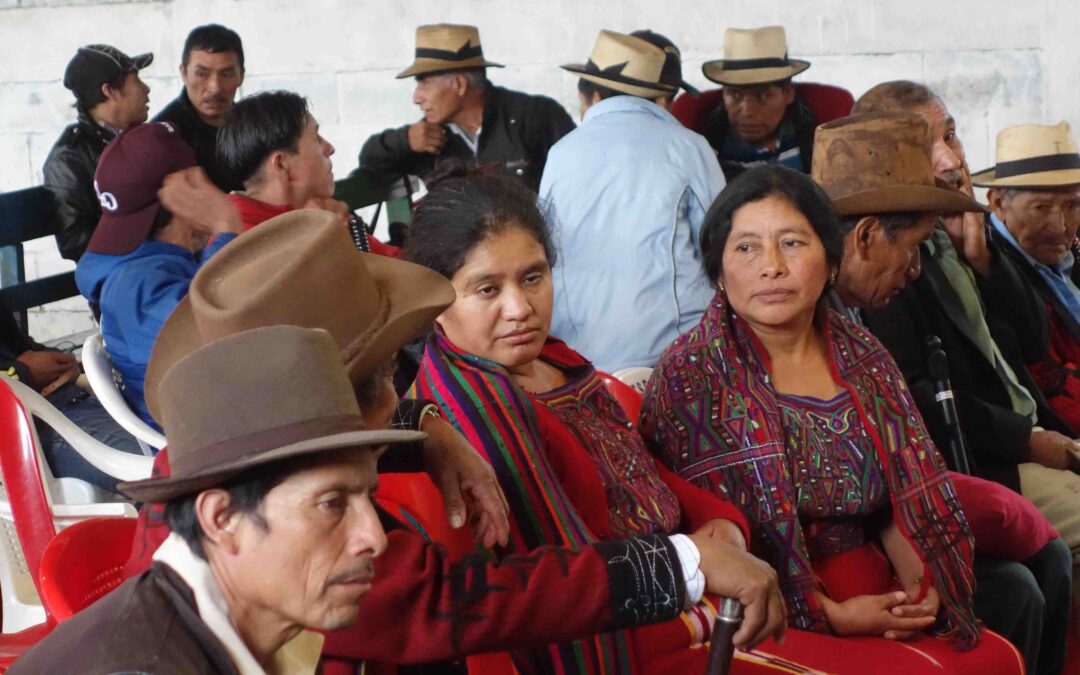
Feb 24, 2016 | News
The ICJ today called on the Egyptian authorities to put an immediate end to their campaign to muzzle judges through unfair and arbitrary “unfitness” proceedings.
The Disciplinary Board, in hearings that tried dozens of judges at the same time, declared a total of 41 judges “unfit” for judicial office in 2015, forcing them into retirement.
The Supreme Disciplinary Board is currently reviewing these two cases.
The ICJ is concerned that many of the judges that have been subjected to these proceedings are leading advocates for judicial independence in Egypt and that the proceedings before both the Disciplinary Board and the Supreme Disciplinary Board were not fair.
Further, the cases stem from the judges’ exercise of freedom of association, belief, assembly and expression, and it appears that the Disciplinary Boards did not act in accordance with relevant international standards in this regard.
”Ending judges’ tenure following mass proceedings that are both arbitrary and unfair is inconsistent with Egypt’s obligations under international law,” said Said Benarbia, Director of the ICJ Middle East and North Africa Programme.
“With these assaults on individual judges, the Egyptian authorities are ensuring that their ongoing, sustained crackdown on fundamental rights and freedoms is extended to the very institution that is supposed to protect such rights and freedoms- the judiciary,” he added.
In the “July 2013 Statement Case”, 56 judges were subjected to disciplinary proceedings, following the Military seizure of power in July 2013, for endorsing a statement that called for the 2012 Constitution to be restored, for a dialogue between all stakeholders to be established within the framework of constitutional legitimacy, and for the right to peaceful demonstration to be respected.
The ICJ considers the statement to have been made consistent with the judges’ right to freedom of expression and association, exercised in a manner that preserved the dignity of their office and the impartiality and independence of the judiciary.
However, on 14 March 2015, the Disciplinary Board found that 31 of the 56 judges were not fit to hold judicial office and in effect removed them from office by forcing them into retirement.
The Board found there was not sufficient evidence that the other 25 judges had in fact endorsed the statement.
The ICJ is concerned that the procedures and hearings before the Disciplinary Board and the Supreme Disciplinary Board have not satisfied international standards of fairness.
In many instances, judges were not adequately notified of the dates of the hearings or of the courtrooms where such hearings took place.
In Egypt, judges facing disciplinary hearings are entitled to have another judge represent them; however, many of the judges were not permitted by Board officials to bring their representative to the hearings, without any reason being given for barring the representative, or because no representative could be secured as a result of fear of reprisals.
Further, many judges were not provided with adequate time and facilities to prepare their defense.
In another case, the “Judges for Egypt Case”, each judge had limited time to make his case before the Board during the hearings, though they were granted the right to submit at the final hearing written pleadings of no more than two pages .
At the final hearing in the case, while the judges waited all day in the Board’s premises, the hearing was held in the absence of all but one of them.
Furthermore, the Board refused to collect the written pleadings without giving any reasons.
On 22 February 2016, after protesting against the adjournment of his hearing, Judge Amir Awad was arrested and placed under detention for four days by the office of the prosecutor.
He is charged with insulting a public employee and forcibly entering his office.
“Both cases have been tainted by failures to ensure the fairness of the proceedings. The Egyptian authorities must nullify all decisions to remove judges resulting from these proceedings and put an immediate end to all forms of intimidation against and persecution of judges,” Benarbia added.
Contact:
Nader Diab, Associate Legal Adviser of the ICJ Middle East and North Africa Programme, t: +216 51727023; e: nader.diab(a)icj.org
Egypt-Attacks against judges-News-Web Stories-2016-ENG (full story in PDF, English)
Egypt-Attacks against judges- Press Release -2016- ARA (full story in PDF, Arabic)

Feb 23, 2016 | Доклады, Публикации, Тематические доклады
«Реформа адвокатуры в Республике Таджикистан зашла в тупик, и необходимо принять экстренные меры, направленные на защиту независимости профессии», – заявила сегодня МКЮ после опубликования рекомендаций по реформе адвокатуры.
МКЮ признала, что в стране сложилась ситуация, которая может привести к утрате независимости адвокатуры и к существенному сокращению числа практикующих адвокатов.
После того, как в декабре 2015 года МКЮ провела в Душанбе «круглый стол», участники семинара обратились к МКЮ с просьбой проанализировать состояние реформы и представить свои рекомендации.
В частности, МКЮ сделала следующие рекомендации:
- Властям следует воздерживаться от вмешательства в процесс свободного избрания должностных лиц самоуправляемой профессии;
- Следует отменить или изменить поправки к Закону «Об адвокатуре», принятые в ноябре 2015 года, которые ограничивают независимость адвокатуры;
- Необходимо обеспечить независимость Квалификационной комиссии от исполнительных органов власти, в частности, сделав её органом Союза адвокатов;
- Необходимо отменить требование о прохождении переаттестации адвокатами, уже допущенными к практике, под угрозой лишения их права на осуществление адвокатской деятельности; и
- Не должна допускаться прямая или косвенная дискриминация при предоставлении допуска к профессии.
- Эти и другие рекомендации направлены на поиск быстрого выхода из тупиковой ситуации, сложившейся в Таджикистане, где независимо избранный председатель Союза адвокатов не может получить статус адвоката в результате действия спорных поправок к новому закону.
Рекомендации подготовлены по результатам проведения «круглого стола», организованного МКЮ в декабре 2015 г., на котором обсуждались принципы и практические аспекты независимости и самоуправления адвокатских ассоциаций, а также иные вопросы, важные с точки зрения независимости адвокатов, включая процедуры их аттестации и привлечения к дисциплинарной ответственности.
Данное обсуждение, а также анализ законодательства легли в основу настоящих рекомендаций, подготовленных в свете международного права и стандартов, касающихся роли юристов.
Tajikistan-Independence of legal profession-Publications-Reports-Thematic reports-2016-RUS (полный доклад на русском, PDF)
Tajikistan-Indep legal prof-News-Web stories-2016-RUS (полная история на русском, PDF)

Feb 19, 2016 | News
The ongoing incommunicado detention of human rights defenders Nguyễn Văn Đài and Lê Thu Hà must end, said today seven human rights groups, including the ICJ. It violates their right to freedom from torture and other cruel, inhuman or degrading treatment or punishment.
All charges against Nguyễn Văn Đài and Lê Thu Hà, should be withdrawn and they should be immediately and unconditionally released, the organizations added.
An incommunicado detention is one in which a detainee is held without access to the outside world, particularly to family, lawyers, courts and independent doctors. The practice of incommunicado detention violates key rights of persons deprived of liberty and facilitates torture and other ill-treatment. Prolonged periods of incommunicado detention can themselves constitute a violation of the prohibition on torture and other ill-treatment.
Nguyễn Văn Đài and Lê Thu Hà were arrested on 16 December 2015 and charged under Article 88 of the Penal Code, ‘Conducting propaganda against the state’. All efforts by family and legal counsel to visit the pair since their arrests have been denied.
Vietnam-Release prisoners-News-webstory-2016-ENG (full story, in PDF)

Feb 18, 2016 | Доклад миссии установления фактов, Доклады, Новости, Публикации, Статьи
Сегодня МКЮ опубликовала окончательный текст доклада, посвящённого реформе адвокатуры в Кыргызской Республике и созданию единой ассоциации адвокатов.
В докладе представлены замечания МКЮ и изложены рекомендации по вопросам, которым необходимо уделить первоочередное внимание в ходе реформы.
«Решение данных вопросов позволит заложить фундамент сильной адвокатуры в Кыргызстане с учётом международного права и стандартов, касающихся независимости юристов», – отметила Роушин Пиллей, директор Региональной программы МКЮ по Европе.
В докладе приветствуется формирование единой Адвокатуры, что является важной вехой как для адвокатов, так и для системы правосудия в целом, поскольку адвокаты играют важнейшую роль с точки зрения поддержания верховенства права и защиты прав человека в любой системе правосудия.
В то же время, в докладе отмечается, что создание соответствующей правовой и институциональной базы является лишь первым шагом на пути к созданию независимой и самоуправляемой адвокатуры, которая сможет обеспечить высокие моральные качества и профессионализм своих членов.
МКЮ подчеркнула значение происходящего, а также привилегированное положение адвокатов, которые вошли в состав руководства новой Адвокатуры.
«Именно видение и действия этих людей определяют будущее кыргызской адвокатуры», – добавила Роушин Пиллей.
Доклад подготовлен по итогам миссии МКЮ в Кыргызскую Республику, которая была организована в сентябре 2015 года для оценки, исследования и анализа реформы с точки зрения функционирования юридической профессии. Представители МКЮ провели встречи с различными представителями Адвокатуры, включая членов Совета Адвокатуры и её органов, таких как Комиссия по этике, Комитет по защите прав адвокатов и Законодательный комитет Адвокатуры.
Вместе с Учебным центром адвокатуры МКЮ провела «круглый стол» с участием адвокатов, а также встретилась с представителями прокуратуры и судебных органов.
Kyrgyzstan-New Advokatura-News-Web Story-2016-RUS (история на русском, PDF)
Kyrgyzstan-New Advokatura-Publications-Reports-Fact Finding Mission Report-2016-RUS (доклад на русском, PDF)

Feb 13, 2016 | Artículos, Multimedia, Noticias
Este caso afecta 14 comunidades que implican aproximadamente 15000 personas
Este caso se inicia a nivel local en el Municipio de Nebaj, con la notificación por parte del Estado (Secretaria de Asuntos Agrarios y FONTIERRA[1]) a las 14 comunidades de la aldea Tzalbal, de que la tierra (33 caballerías) de la aldea Tzalbal[2] en el municipio de Nebaj, ya no era de ellos, ya que pasaron a nombre del Estado cuando ellos estaban refugiados en México o desplazados internos en las montañas en 1984. Este despojo de tierra afectaría a aproximadamente 15000 personas.
Ante esta información, las comunidades pidieron apoyo a la Comisión Internacional de Juristas (CIJ), para determinar si esto era cierto. La CIJ llevó a cabo un estudio registral que confirmó la información: las tierras habían sido vendidas al Estado por medio de escritura pública firmada por el alcalde de esa época. Sin embargo, dicho acto no había contado con el aval de los “vecinos de Nebaj”. Por esa razón, la CIJ consideró que habían suficientes razones legales, para que la tierra fuese restituida por el Estado a las comunidades.
Reclamo a Nivel local: con el acompañamiento de la CIJ y el esfuerzo de las comunidades, se inicia un diálogo con el actual alcalde Municipal del municipio de Nebaj.[3] El Alcalde decide apoyar a las comunidades. El alcalde municipal y su Consejo Municipal aprueba un acuerdo municipal de restitución de tierras, lo cual fue muy significativo. Sin embargo, el Organismo Ejecutivo a nivel local no permite que la rstitución avance.
Reclamo a nivel Nacional: Con el acuerdo municipal de restitución de la tierra aprobado por el Consejo Municipal de la Alcaldía de Santa María de Nebaj y con el apoyo del Alcalde Municipal de dicho municipio, la CIJ acompaña a las comunidades, brindándoles asesoría legal; se inicia un reclamo administrativo al Estado (Organismo Ejecutivo representado por FONTIERRA y la Secretaría de Asuntos Agrarios), para lograr la restitución de la tierra por la vía administrativa.
Esto permitiría recuperar la tierra a nombre de la Alcaldía Municipal de Nebaj y sus vecinos, por la vía administrativa, sin necesidad de recurrir a la vía judicial por medio del recurso de amparo, que implicaría más tiempo. Se conforma una mesa de diálogo entre dichas instituciones estatales, las comunidades y el Consejo Municipal de Santa María de Nebaj.
A pesar de que el Gobierno de Guatemala, por medio de las dos instituciones estatales mencionadas, se compromete a aprobar un Acuerdo Gubernativo de restitución de tierras, cuyo texto fue aprobado en la mesa de diálogo, el Estado no cumple con su compromiso de aprobar dicho acuerdo y a finales del año 2014 se interrumpe el diálogo y las comunidades, conjuntamente con la CIJ, inician el estudio de la alternativa de acudir a la vía judicial por medio del recurso de amparo, para lograr la restitución de la tierra por la vía judicial.
La oficina de la CIJ en Centroamérica dará apoyo legal a las comunidades, para reclamar por la vía judicial la restitución de la tierra que les fue despojada durante la guerra. La elaboración de dicho reclamo legal, se hará tomando en cuenta que si los tribunales nacionales no aceptan el reclamo judicial, se acudirá al Sistema Interamericano de Derechos Humanos.[4]
Para el efecto, la CIJ organizó una visita a Tzalbal, en la que participó Olivier van Bogaert, Diretor de medios de comunicación de la CIJ en Ginebra, el abogado mexicano José Guevara, Director Ejecutivo de la Comisión Mexicana de Defensa y Promoción de los Derechos Humanos y el Director de la CIJ para Centroamérica.
La Asamblea Comunitaria contó con la participación del señor Alcalde Municipal Pedro Raymundo Cobo.
Esta visita se llevó a cabo el 29 de septiembre de 2015. También participó la abogada guatemalteca Martha García, quien llevó a cabo el estudio registral sobre la tierra de Tzalbal.
El Director de Medios y comunicación de la CIJ pudo llevar a cabo varias entrevistas y realizó un video acerca de este caso.
Actualmente, se está preparando el recurso de amparo, para lograr la restitución de la tierra por la vía judicial.
[1]Fondo Nacional de Tierras y la Secretaría de Asuntos Agrarios fueron creados a raíz de los acuerdos de paz, para resolver la conflictividad agraria. Sin embargo, se han apartado de sus objetivos originales y muchas veces presionan a las comunidades para resolver la conflictividad agraria por medio de engaños y represión.
[2] Tzalbal fue uno de los centros de operación del Plan Sofía en 1982. Arrasada por el Ejército en los años ochentas. En la región se sufrió el Genocidio Ixil. Las masacres se iniciaron en 1981 y tuvieron que desplazarse internamente o buscar refugio en México.
[3] Nebaj es un municipio al occidente del país, compuesto principalmente por población maya-Ixil. Sufrieron durante la guerra el genocidio Ixil y parte de sus tierras están registradas en forma comunitaria como Éjido Municipal de Nebaj, propiedad de la Municipalidad y vecinos.
[4] Es importante hacer ver que existen dos casos similares (Aguas Tingny vrs. Nicaragua y Yake Axa vrs. Paraguay), en el cual la Corte Interamericana falló a favor de las comunidades, quienes habían sido despojadas de la tierra.
Caso Nebaj en video:







